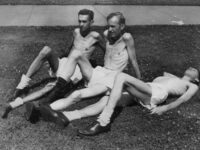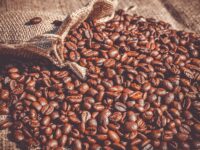We’ve all been there. Up at an ungodly hour, studying (or rewatching The Office), and all of a sudden, we see a pack of cup noodles sitting on our bedside. We may not even be hungry, but cup noodles taste fantastic, and it’s two in the morning– so why not?
But this late-night snacking may not be the best idea. Firstly, when we’re up that late, we tend to gravitate towards junk food– pizza deliveries, vending machines, convenience store snacks. These snacks are high in fat and sugar, low in nutrition, and caloric. Although replacing our junk food snacking with healthier alternatives, like fruit, yogurt or nuts, is a step in the right direction, it’s not just what we eat late that’s bad– it’s the fact that we’re eating late at all.
In a 2013 study, participants who ate their major meal after 3 PM lost less weight during a 20-week weight-loss program than those who ate their main meal before 3 PM, even though their lifestyles, even the amount of food they were eating, were kept the same. This was the first study to show that later eating in general caused people to lose less weight and lose it slower, as the calories the late-meal participants were consuming were more likely to be stored as fat and carbohydrates, instead of being burned for energy. Further studies are aiming to look at “clock” genes in fat tissue– perhaps if you eat at the wrong time for your body fat clock (when your fat tissue is not ready for it), the capability to mobilize the fat will reduce.
Late-night eating can increase glucose, cholesterol, triglyceride, and insulin levels, all of which are precursors for diseases like diabetes and heart disease.
Late-night eating can increase glucose, cholesterol, triglyceride, and insulin levels, all of which are precursors for diseases like diabetes and heart disease. It also impacts our blood pressure: while we’re sleeping, our blood pressure is especially low, dropping by at least 10 percent to allow the body to rest. However, snacking late at night keeps our bodies alert, instead of going into relaxation like it should. As a result, the elevated blood pressure levels can increase the likelihood of heart disease and heart attacks.
Finally, eating too close to bedtime can trigger acid reflux and heartburn, causing sleeplessness and burning chest pains. Researchers suggest a light dinner, allowing 2-3 hours between dinner and bedtime. But this doesn’t often happen: US adults consume 17 percent of their day’s calories at breakfast, 24 percent at lunch, and 34 percent at dinner. Because of our busy schedules, we seldom have time for anything other than a light breakfast and lunch. In addition, our cortisol and adrenaline levels plummet by late afternoon, around 3 PM, accounting for our low energy and focus at that time. As a result, we usually hit up a vending machine or coffee shop, and these foods, high in sugar and fat, increase our appetite and insulin levels, causing us to eat a heavier dinner and making us more prone to eating sugary foods later on.
Our busy schedules aren’t completely to blame. In another study, participants stayed in a dimly lit area for 13 days, got plenty of sleep, and consumed identical meals at even intervals in 24-hour periods. However, they were much hungrier at 8 pm than 8 am, and had more cravings for sweet, salty or starchy foods at this time. This is evolutionarily significant, as when food was scarce, our ancestors would eat in the evening as this is when the body best stores fat and glycogen. As a result, they wouldn’t have to worry about immediately replenishing their calories the next day. But our lives are much different from the lives of our ancestors, and this once-useful strategy is detrimental to our comparatively sedentary existences today. That being said, not all late-night eating is bad– consuming a 150-calorie protein shake 30 minutes before bed can actually help muscle growth and repair, boost metabolism, and help the body recover from a workout. This is because sleep is the only time you are not actively engaged in anything. Thus, our bodies work on recovery, cell turnover, improving immune function, and building and repairing muscle tissue.
That being said, not all late-night eating is bad– consuming a 150-calorie protein shake 30 minutes before bed can actually help muscle growth and repair, boost metabolism, and help the body recover from a workout.
Despite our best efforts, sometimes temptation can take over. How can we avoid this? Before we eat at night, we first have to ask ourselves if we’re really hungry. There are many other reasons that we eat: stress, anxiety, habit, because we’re bored. But if we really must eat, we should keep the calorie count low, around 100-200 — so maybe leave those leftover slices of pizza for another time.
Image source: Pixabay.






